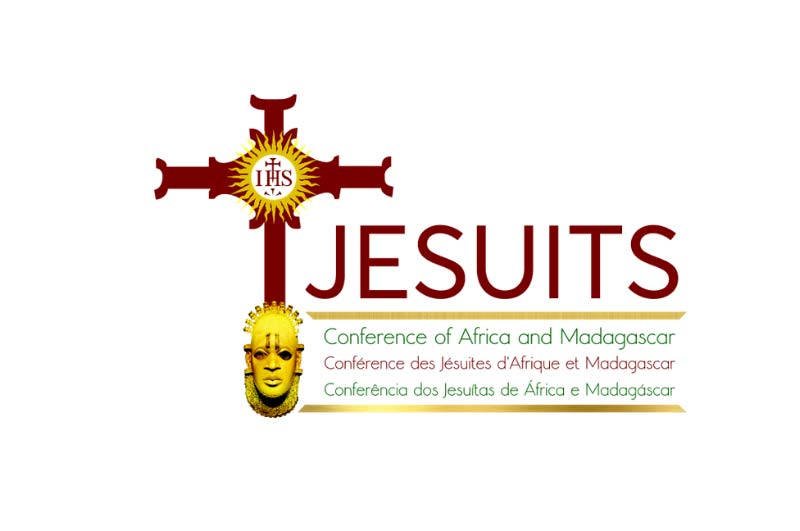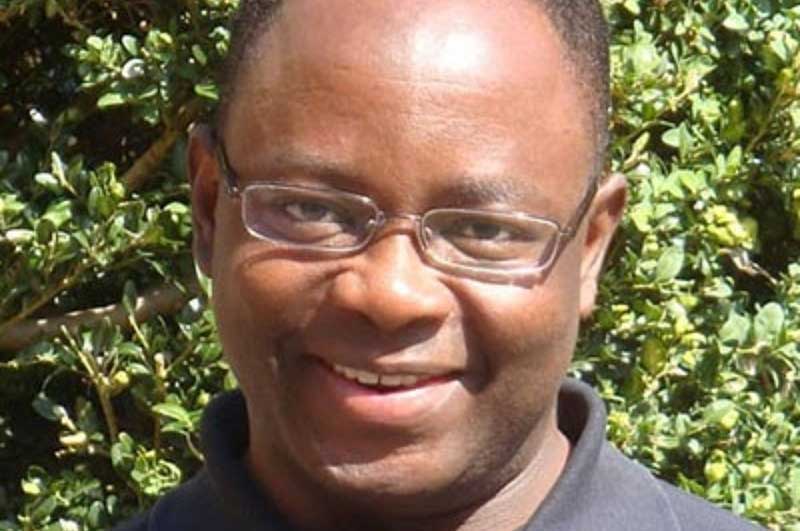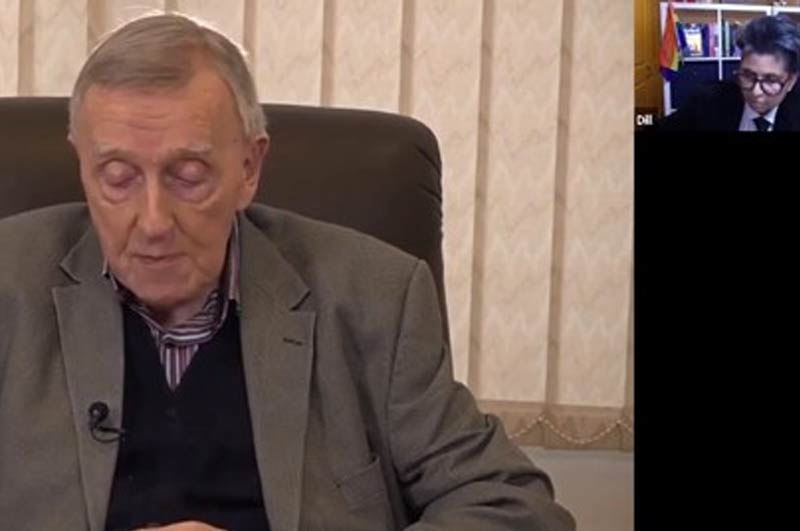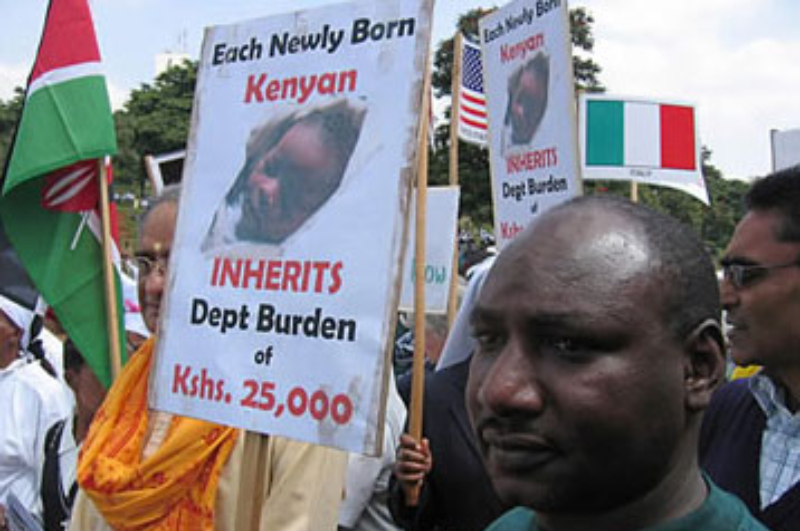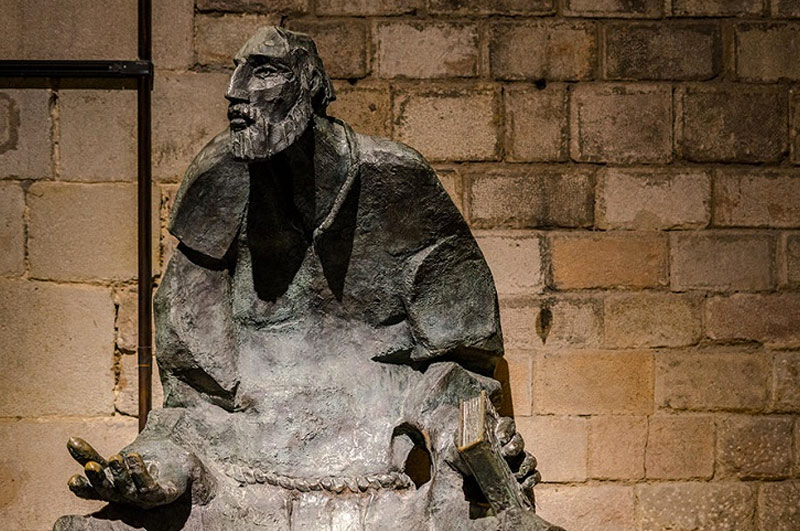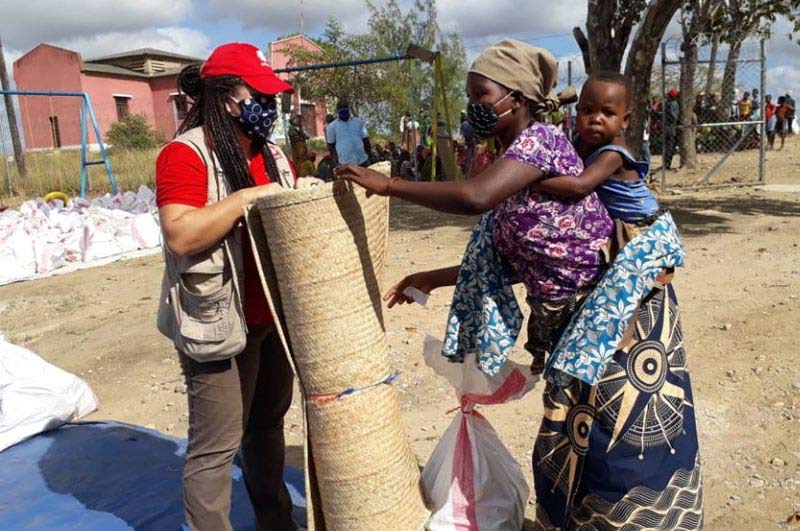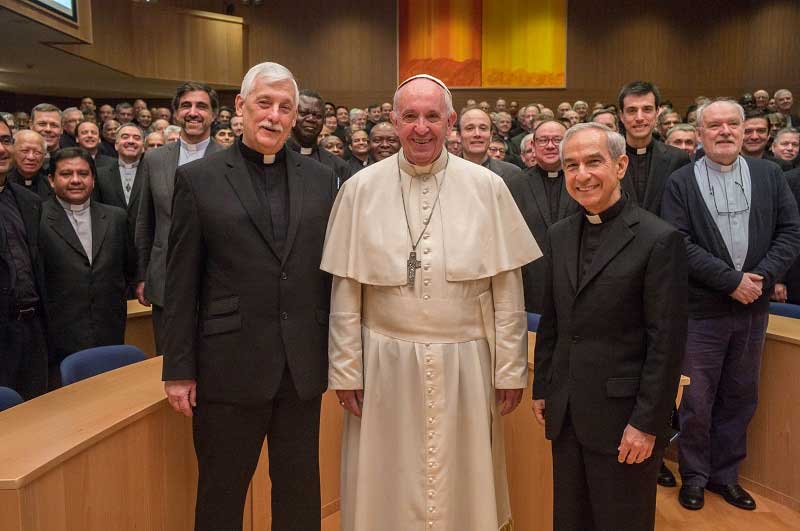


The starting point of our discernment – which has involved all Jesuit communities and all our apostolic works – is the “unity in diversity” of our cultures, languages, and traditions.
At present, the Society is made up of about 15,600 Jesuits scattered in about 110 countries around the world, with a greater density that has moved away from Europe and is now in a belt stretching across Latin America, Africa, and Asia.[1] We collaborate in every part of the world with thousands of lay people, other men, and women religious, diocesan priests, men and women engaged in the same apostolic mission in the theological and spiritual, cultural and social fields.
This rich process of listening and discernment has allowed us to present to the Holy Father four universal apostolic preferences: 1) Show the way to God through the Spiritual Exercises and discernment. 2) Walk with the poor, the outcasts of the world, those whose dignity has been violated, in a mission of reconciliation and justice. 3) Accompany young people in the creation of a hope-filled future. 4) Collaborate in the care of our common home.
In 2003, the Society had established as its preferences the ministry in China and in Africa, the service of migrants and refugees, the intellectual apostolate, and its international institutions in Rome. They recalled the five great needs of the mission that could be managed with the help of the universal body of the Society. These needs remain a challenge for all of us and should not be neglected or replaced.
The four preferences indicated are, instead, orientations that highlight the spiritual character of our mission. There is no one preference more important than the others. All of them are for us a call that touches our identity and must be considered and understood together. Moreover, they do not list new things to do, but deal with inspiration on how to engage with them and to live the mission within a universal horizon, developing it according to the specifications of the places where we find ourselves.
In his letter of encouragement dated February 6, 2019, Pope Francis wrote that “the process followed by the Society to arrive at universal apostolic preferences was […] a real discernment.” The preferences proposed are, according to the pontiff, “in tune with the current priorities of the Church, expressed through the ordinary magisterium of the pope, synods and episcopal conferences, especially Evangelii Gaudium.” The pope then added: “The first preference is capital, because it presupposes as a basic condition the relationship of the Jesuit with the Lord, the personal and community life of prayer and discernment.” And he reiterated: “Without this prayerful attitude, the rest does not work.”
The experience of Saint Ignatius of Loyola teaches us that the new problems of the Church and the world cannot be resolved with old answers. To reform institutions it is necessary to reform the hearts of those who govern them. Ignatius was a “man-bridge” of the 16th century, a time of epochal changes in which the spaces of the planet and of humanity expanded and a new world emerged; Christopher Columbus had just discovered America; Copernicus proposed that it was the earth that revolved around the sun; these were the times of Luther and the Council of Trent…
In the midst of epochal changes such as facing us, every reform within the Church begins by recovering the relationship of oneself with Christ, in communion with the Successor of Peter. The universal apostolic preferences were formulated in this spirit. They arise from the encounter with Jesus crucified, whose love gives a “universal gaze.”
A passage from John’s Gospel reminds us: “No one has ever seen God: the only Son who is God and is in the bosom of the Father, it is he who has revealed him” (John 1:18). It is, therefore, necessary, as Saint Ignatius says, “to know intimately the Lord who became man for me, that I may love him more and follow him closely.”[2]
That is why the pope has asked us to start again from spirituality. For the Society, putting care of the spiritual life at the center, according to the charism we have received, means reactivating processes, generating hope, allowing us to see the world in the way God looks at it. The gestures, words and choices of Francis’ pontificate should be read with this universal gaze in mind, which recomposes tensions, misunderstandings and particular interests.
The Way to God through the Spiritual Exercises and Discernment
“Discernment” is one of the words that characterize this pontificate. But one must understand it well, so as not to distort it in the sense of doing what I want and making excuses for behaving in this way.
Some tendencies in contemporary cultures seem to empty discernment of its anthropological meaning, that is, of the sense of obligation to the imperatives of conscience, of responsibility toward the poor who suffer and, finally, of obedience to God’s will.[3] To integrate truth and freedom, law and responsibility, authority and obedience – from the Latin ob-audire meaning “listening before the other” – we need discernment.
Desire and the will to discern are not to be taken for granted. It is generally not a spontaneous or reflex attitude. Discernment is not simple, but rather a complex process that involves all the people and groups that practice it. So the question must be asked: is there a real willingness to discern? The stages of this process are summarized by the pope in Evangelii Gaudium when he quotes three significant verbs: “recognize,” “interpret,” “choose.”
Since Ignatius of Loyola systematized the rules of discernment in 1523 they have become a common mode of proceeding offered to all people of good will. The experience of the Spiritual Exercises leads one to understand the vocation to which we are called in order to serve Christ, and thus to choose freely to do so. Through discernment we are able to distinguish the seductions of evil – including when they appear to be good – from the signs of the presence of God working in human history. Discernment thus leads one to make choices about the meaning of one’s life.
It is in discernment that the great questions of personal life and of the Christian and human community take shape: Who am I called to be? What decision is useful to make as a community of believers for the good of all? How can we avoid social evil and build the common good?
In personal life, as in social and political life, discernment helps to build the common good. Whoever does it receives as a gift “courage, strength, consolations and peace,” writes Ignatius of Loyola in the Spiritual Exercises. Through discernment one no longer distinguishes between believers and non-believer s, but between moral men and women and those who promote the good of all and, on the other hand, those who sow fear and division. But there is more. In community discernment, the limits of personal and social crises can leave room for life after death and the new signs of the times.
The Universal Declaration of Human Rights is an example of how peoples and nations have discerned maturely, putting the dignity of the person at the center. Unfortunately, in recent years we have seen a contraction in the universality of human rights; we see the relationship between law and power changing. There are many examples that we could give: from immigrants on the Mexican border to journeys of hope over the Mediterranean Sea, from the silent exodus of the peoples of Africa to the persecution of ethnic minorities in Asia and Latin America. It is political power that decides on each occasion whether those people who do not have the right of citizenship can also enjoy human rights.
Secular society challenges us. To proclaim the Gospel we must overcome both secularism and nostalgia for cultural expressions of the past. Secular society is also a sign of the times that offers us the opportunity to forge our faith in history. It is the place where new spaces are opened for human freedom and, in it, for religious freedom. It is in secular society that the conditions are born for a renewed adherence to the following of Jesus in the social, economic, cultural and political environments of our time.
Walking with the poor, in a mission of reconciliation and justice
For Pope Francis, the future of humanity envisages the social inclusion of the poor, peace-building and social dialogue.[4] The inclusion of the poor cannot occur from outside; it is possible only if the poor want it. The condition for building inclusion, justice and peace is “walking together.” Francis gives an example of this. There are no theoretical recipes; it is necessary to walk together. To do this, however, we must truly approach the poor as people, know their life and acquire their approach to life. In this way we can continue on the path followed by Jesus of Nazareth when he became “poor among the poor.” Only in this way can we see the world from the point of view of the poor.
Injustices must be recognized and called by name, and their causes must be studied to promote change in the economic, political and social structures that generate them. We must admit that it is not an easy intellectual task to fully understand the structural causes of injustice and the inhuman conditions in which the majority of human beings find themselves. Both the complexity of reality and the conditions of those who live in it require an original and systematic effort on our part.
Justice can be nurtured by the practice of revenge or the practice of reconciliation. Justice, as the fruit of reconciliation, is to put right relationships previously built on the wrong basis: those between individuals, between peoples and their cultures, with nature and with God. Pope Francis writes in Evangelii Gaudium: “To the extent that Jesus succeeds in reigning among us, social life will be a space of fraternity, justice, peace, dignity for all. Therefore, both the proclamation and the Christian experience tend to provoke social consequences. Let us seek his Kingdom: ‘Strive first for the kingdom of God and his righteousness, and all these things will be given to you as well’ (Matt 6:33). Jesus’ plan is to establish the Kingdom of his Father; he asks his disciples to proclaim the good news, ‘The kingdom of heaven has come near.’ (Matt 10:7)” (EG 180).
The political dimension remains of primary importance in promoting justice and reconciliation. A just and democratically governed world requires that we are genuine citizens. Investing in citizenship education will help us to strengthen political democracy, to promote social organizations committed to the common good and to stem the harmful consequences of the various forms of neo-liberalism, fundamentalism and populism. Every person is called to be responsible for his or her citizenship and to educate himself or herself in it.
We need people who govern by placing the common good above special, albeit legitimate, interests. From the Christian point of view, becoming a politician means listening and responding to a call from the Lord. It is part of the mission of reconciliation and justice to discover, promote and form vocations to public service. This is the politics with a capital “P” of which Francis speaks.
For the Society of Jesus, the mission of justice and reconciliation means walking in the style of Jesus, together with the poor, helping migrants and victims of human trafficking, contributing to the elimination of all kinds of abuse, inside and outside the Church. There is no shadow of a doubt that structural injustice is linked to abuses of power, sexuality and conscience. Promoting justice therefore means effectively contributing to the eradication of all forms of abuse.
Fr. Pedro Arrupe, missionary in Japan and Superior General of the Society of Jesus from 1965 to 1983, taught us that the service of faith and the promotion of justice are two lungs of the one body: Without the dimension of faith, action would become ideological; without the promotion of justice, Christian witness would be limited to the management of worship. It is also under this “faith-justice” combination that the pontificate of Francis must be understood.
Accompanying young people in creating a future of hope
The Ignatian educational network accompanies about one million students around the world each year, if we include the schools of Fe y Alegría. For the Society, it is a great responsibility to form “men and women with and for others.” The younger generations change quickly. Half a century has passed since 1968, and the young people of the third millennium – for fear of losing the little they have achieved on their own – have only recently begun to claim their social rights together again. Their generation poses questions to the whole educational and social system: Toward which goal are they oriented? How can we accompany them? What dialogue is possible?
Our mission is to prepare with them a future of hope. The poor and the young have become the “theological places,” the crucified of the present world from which new life can spring forth. The Holy Spirit speaks to us today through the young people. It seems a provocation, knowing that the majority of them are poor. He speaks to us when we accompany them in their vital contexts, when we immerse ourselves in their anxieties and dreams. We are all called to draw closer to their vital worlds.
The Church, led by Francis, is setting its hopes on the “education” of young people, and this in the highest sense of e-ducere, “drawing out” resources, innovations, and values from them.
Shared experience is a high form of accompaniment of the young person. In the Ignatian tradition, it requires continuous, personalized formation, with the help of spiritual readings or chosen studies, the creation of places of listening, commitment to the service of society and days of prayer and silence to be lived during the year in order to have the opportunity to re-examine one’s own life.
The Society of Jesus has chosen to listen to young peopl e. It asks them to help understand its mission through an update, an upgrade, to be provoked by their search for faith, their language, their affections and their new practices, to create a new sense of community belonging that includes and does not end in what young people experience on their own and in the network. The challenge is to create together “existential spaces” where young people can be true protagonists, learn to make decisions and guide personal and community processes.
Collaborate in the care of the common home
Pope Francis has repeatedly stated that Laudato Si’ (LS) is a social encyclical. There are not, in fact, two separate crises, one environmental and one social, but a social-environmental crisis. The encyclical invites us to promote a new model of integral human development, because “everything in the world is intimately connected” (LS 16).
This challenge calls us to propose alternative models of sustainable life that are based on respect for creation and capable of producing and distributing goods with justice, so that everyone is guaranteed a dignified existence. Each of us is called to face a double challenge: On the one hand, to help create alternatives to the existing model that puts the life of the planet at risk and, on the other, to witness to a lifestyle in which harmony with the environment emerges. Of course, we need our commitment to structural changes, but there are also urgent “small changes” that affect our daily lifestyles – such as the use of plastic, energy, transport, choice of clothes, and the like.
Integral ecology thus becomes the paradigm capable of holding together environmental phenomena and problems (global warming, pollution, depletion of resources, deforestation, etc.) with all life’s other issues, such as the livability and beauty of urban spaces, virtuous behavior, good governance of cities. Even more so, attention to links and relationships makes it possible to find in integral ecology a key to reading life at all levels, from the relationship with one’s own body (cf. LS 155) to social and institutional dynamics. “If everything is related, the state of health of the institutions of a society also has consequences for the environment and for the quality of human life […]. In this sense, social ecology is necessarily institutional and progressively reaches the different dimensions, ranging from the primary social group, the family, to international life, passing through the local community and the Nation” (LS 142).
For the Society of Jesus, caring for now fragile ecosystems, such as life in the Amazon, India and Indonesia and in the Congo Basin, is a way of making authentic worship of God’s creative work.
Universal citizenship is built through a supranational policy that privileges cooperation over division, so that goods such as water, air, soil and climate are entrusted, not to the management of individual nations, but to the care of the universal human community.
Since its inception, the Society of Jesus, despite having been formed by Jesuits of different cultures and nations, by people who belonged to states at war with each other achieved a universal outlook, which goes beyond divisions and comes from three experiences: a deep friendship with the Lord Jesus, study, and service to the most needy. We explain this with two images that remain valid for us today.
In the square of the Collegio Romano, in Rome, opposite the ancient Roman College founded by Saint Ignatius for the training of clergy from all over the world, there was a small house called “Santa Marta,” where prostitutes were welcomed and recovered. So one can understand what mission meant for Saint Ignatius.
Second image. When Pope Paul III asked Saint Ignatius to send two Jesuit theologians to the Council of Trent, Fathers Laínez and Salmerón stood out not only for the intelligence of their theological contributions, but also for their testimony of life: they participated in the sessions of the Council while staying in a hospital to assist the sick in their free time.
The four universal apostolic preferences of the Society are like seeds that, in order to germinate, require care, prayer, study, service, personal witness and the witness of the whole Society. This is a way of being Church that Pope Francis knows, because he too belongs to this spiritual experience of ours. It is a journey to be made in collaboration and sharing with other Orders and Congregations of religious, with the laity and movements associated with them, using dialogue in a constant dynamic process and in close connection with each other.
We are required to have the ability to make communion prevail over our differences, and to always move to geographical and intellectual “frontiers.” Like two legs, the spiritual and intellectual dimensions will sustain us along the way. The rest will be done through collaboration between us, in fidelity to the Gospel and to the teachings of the Magisterium.
“God, who calls us to generous commitment and to give him our all,” writes the pope in Laudato Si’, “offers us the light and the strength needed to continue on our way. In the heart of this world, the Lord of life, who loves us so much, is always present. He does not abandon us, he does not leave us alone, for he has united himself definitively to our earth, and his love constantly impels us to find new ways forward. Praise be to Him!” (LS 245).
[1]. At the beginning of 2019 there were 15,586 Jesuits: 11,208 priests, 1,031 brothers, 2,609 scholastics and 738 novices.
[2]. Ignatius of Loyola, Spiritual Exercises, No. 104.
[3]. In the Our Father we pray: “Thy will be done on earth as it is in heaven.”
[4]. Cf. Francis, Apostolic Exhortation Evangelii Gaudium (EG), No. 185.
Related Articles
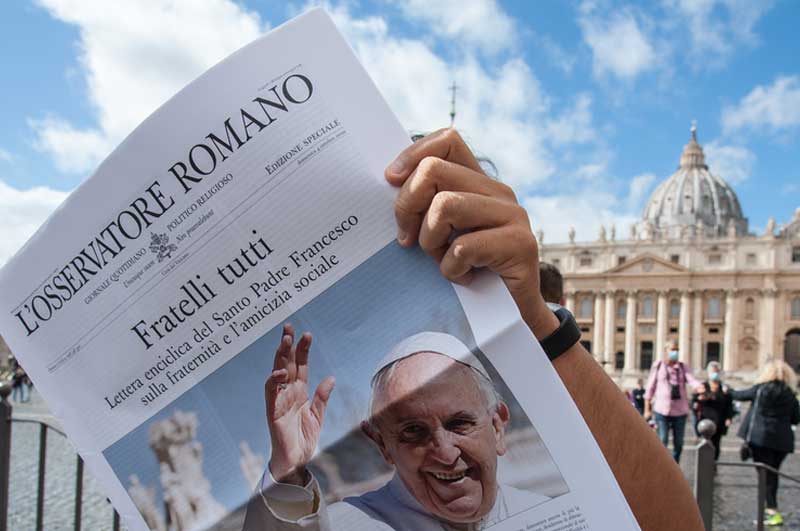
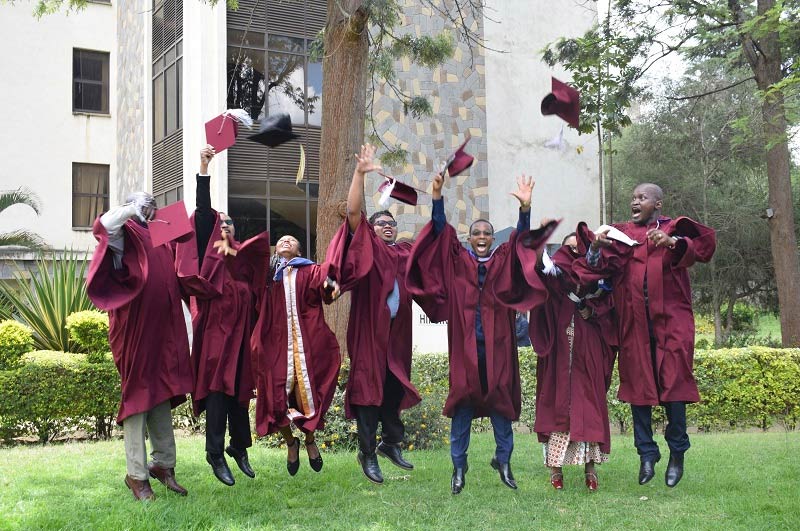

Select Payment Method
Pay by bank transfer
If you wish to make a donation by direct bank transfer please contact Fr Paul Hamill SJ treasurer@jesuits.africa. Fr Paul will get in touch with you about the best method of transfer for you and share account details with you. Donations can be one-off gifts or of any frequency; for example, you might wish to become a regular monthly donor of small amounts; that sort of reliable income can allow for very welcome forward planning in the development of the Society’s works in Africa and Madagascar.
Often it is easier to send a donation to an office within your own country and Fr Paul can advise on how that might be done. In some countries this kind of giving can also be recognised for tax relief and the necessary receipts will be issued.


